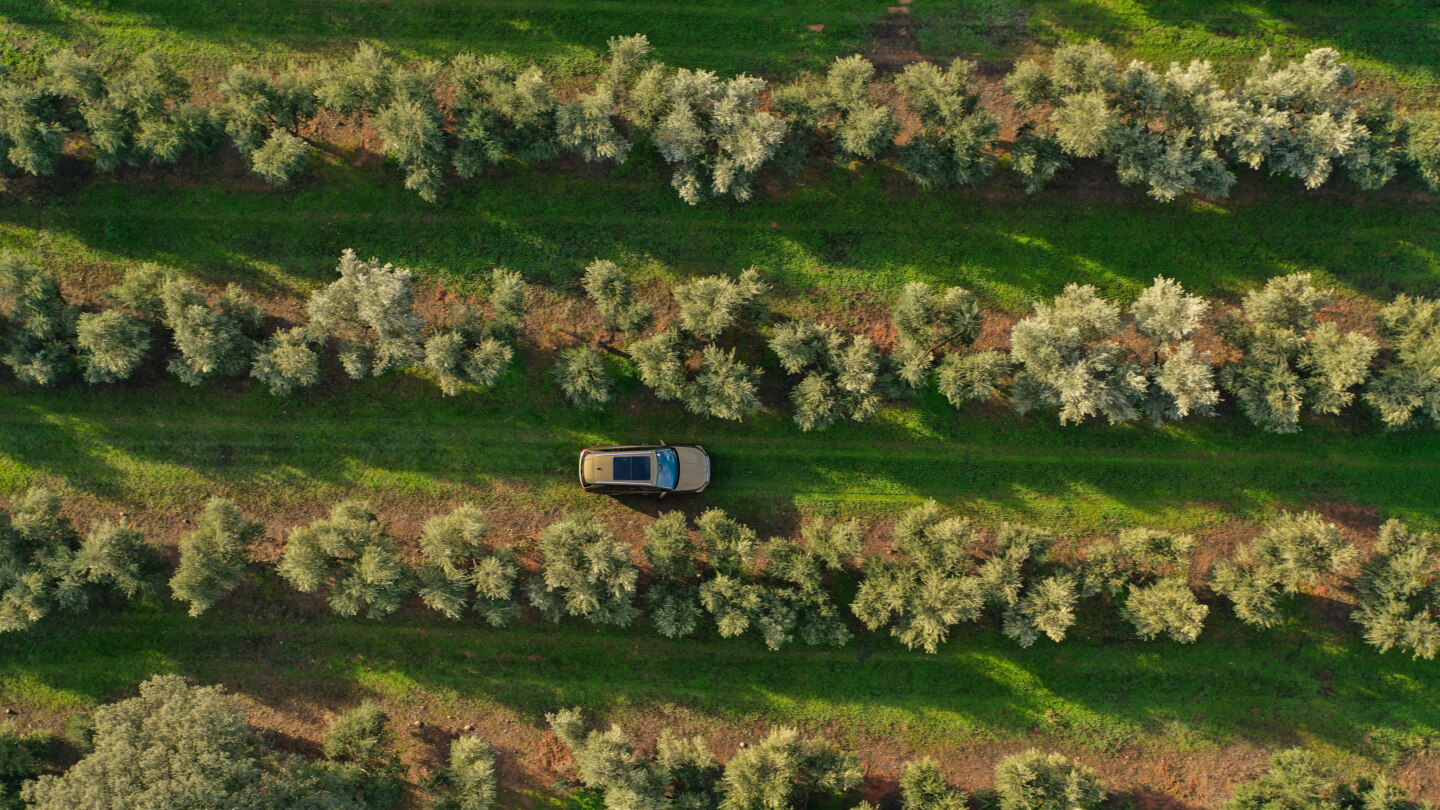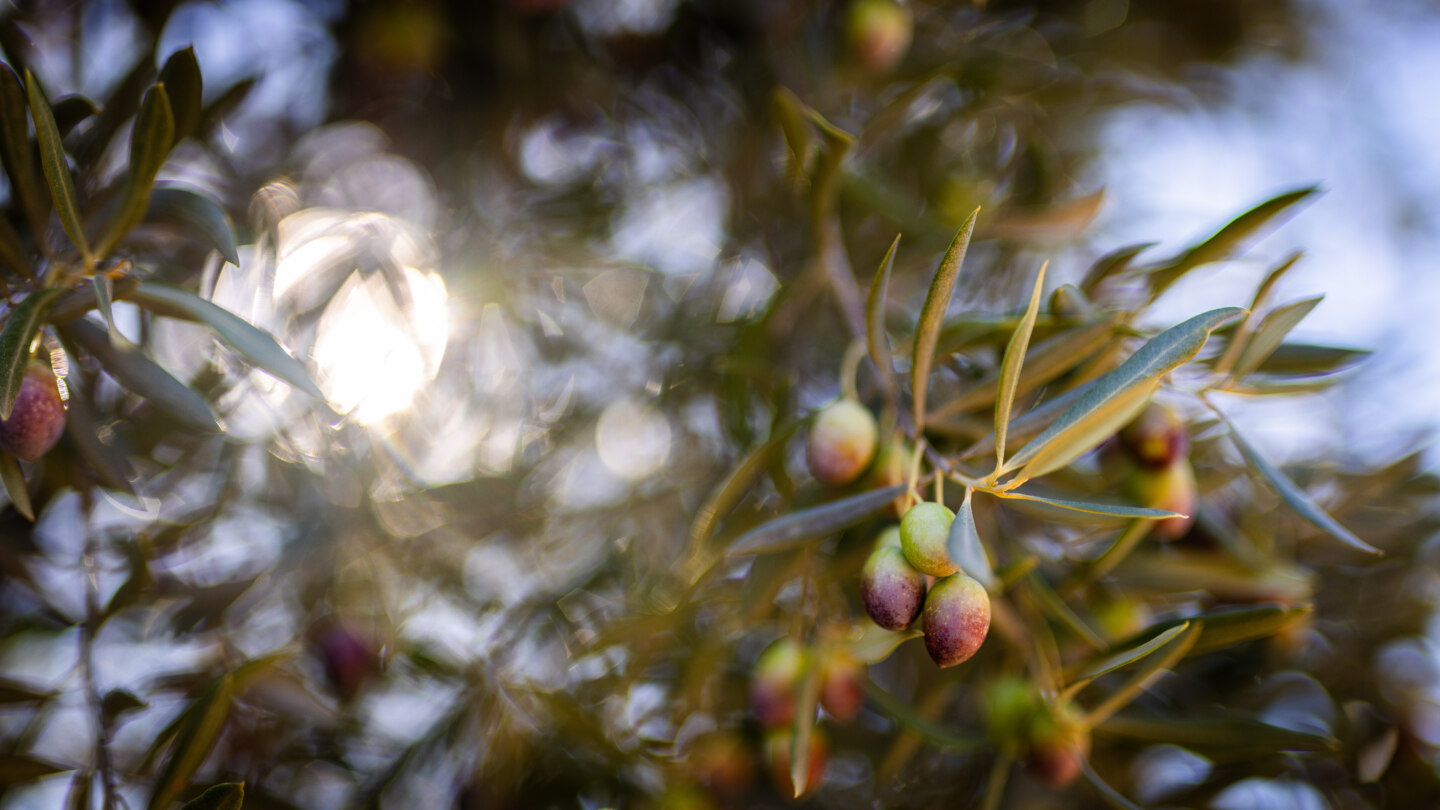This content is hosted by a third party (www.youtube.com). By accessing and viewing this external content, you acknowledge personal data processing may occur by the relevant external provider and you confirm that you are acquainted with the terms and conditions as well as relevant privacy notice of www.youtube.com.I acknowledge and confirm
Every part of the world has its characteristic foods. Spain is renowned not only for its cured ham and delicious paella but also for its olive oil. Locals say that the highest quality olive oil comes from Andalusia, where olive groves bask in intense sunlight. Farms are often passed down from father to son, and the traditional olive processing method has remained unchanged for generations.
 Škoda Kodiaq on a tour of the olive groves.
Škoda Kodiaq on a tour of the olive groves.
“In Spain, olive oil is a household staple. When I visited Eva in the Czech Republic during the summer while studying twenty years ago, I realized that this was not the case here at all. Olive oil was very expensive and did not taste good at all,” Carlos Lozano recalls the beginnings of his entrepreneurial journey. He started bringing olive oil for himself and his family, but soon, the idea of selling quality olive oil in the Czech market took shape. “The push to start a business came from my sister Lída, who suggested selling the oil at farmers’ markets in the Czech Republic,” adds Carlos’s wife, Eva Lozano Červenková.
The Magical 27 °C
Although Carlos now lives with his family in the Czech Republic near Prague, part of his heart remains in Spain. The Andalusian farm produces enough olives annually to make more than 300,000 litres of the finest quality extra virgin olive oil. “The pressing temperature does not exceed 27°C,” Carlos reveals one of the secrets of high-quality olive oil production.
The farm currently produces extra virgin olive oil from two varieties – the robust Picual and the milder Arbequina. These are among the most popular varieties, with about one-third of the world’s olive oil production coming from Picual olives. However, among the vast array of olive varieties, they are just drops in the olive sea, as there are over 1,300 varieties of olives worldwide.
 The largest olive trees can be 1000 years old.
The largest olive trees can be 1000 years old.
Not all olives are suitable for oil production; some are used as ingredients in meals or as side dishes. When it comes to oil, the highest quality is extra virgin, distinguished by its gentle olive processing and low acidity. In olive oil, acidity does not refer to sourness but rather the level of free fatty acids, which are a rich energy source. Virgin olive oil has slightly lower quality due to higher acidity levels but is also cold pressed.
There are also non-virgin oils, created by re-pressing the remnants from virgin oil production, and refined oils, which lose most of their health benefits due to high processing temperatures. These oils are not ideal for cooking as they lack the characteristic rich taste due to the thermal processing.
Food, good company, and longevity
Carlos and Eva brought more than just olive oil to the Czech Republic – they also brought a philosophy. “Sharing meals is the foundation of good relationships in families and among friends. It’s not something we just quickly eat and then rush back to work,” Carlos emphasizes. “Eating together with our loved ones is an important social activity, and it’s no secret that a plant-based diet enjoyed in good company can contribute to longevity.”

